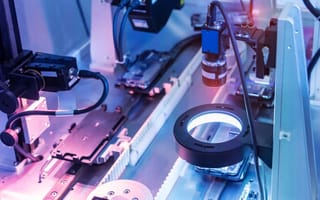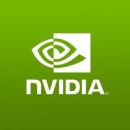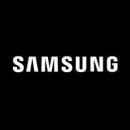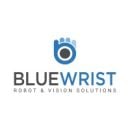Computer vision is an artificial intelligence application that uses AI to equip computers and autonomous devices with the ability to “see.” A key feature of robotics technology, computer vision is also deployed in a wide range of AI-powered autonomous technology functions, from healthcare to agriculture. These computer vision companies are expanding the limits of this emerging technology in Ontario.
Toronto Computer Vision Companies to Know
- NVIDIA
- Samsung
- Bluewrist
- Vivid Machines
- Xesto
Computer Vision Companies in Toronto
General Motors is an American automotive enterprise company. It has produced many iconic vehicle makes and models, including the Chevrolet Camaro and Corvette, the Pontiac Trans Am and the Cadillac El Dorado. GM’s technology operations are diversified across mobility and automotive applications as well as in emerging tech modalities. The company uses computer vision in its vehicle intelligence platform, installed on all GM vehicles since 2023.
Magna International is a mobility technology company. Its primary focus is on engineering and manufacturing physical systems for cars, such as automated driving systems, smart seating and assisted-parking features. Its advanced driver assistance systems, or ADAS, rely on computer vision to monitor other vehicles on the road and to attune to shifts in driver behavior, which can indicate sleepy, distracted or otherwise dangerous driving.
The NVIDIA AI Lab is the research arm of NVIDIA, a firm that designs components like GPUs for AI applications. In the AI Lab, scientists are hard at work developing computer vision technology to pair with machine learning and computer graphics for gaming, simulation, medical imaging and autonomous vehicle applications.
Xesto is a computer vision sizing company that uses machine learning and biometric scanners to help users take extremely accurate sizing measurements as part of a retail shopping experience. Through a smartphone app, users scan their feet, and Xesto scanners return personalized shoe measurements that predict which brand, size and style of shoes will best fit the user’s foot.
The Samsung AI Center supplies the multinational electronics and technology Samsung with emerging research and discovery in computer vision, artificial intelligence and machine learning. The company relies on insights and innovations from the lab to inform its product development pipelines. The AI Center in Toronto is led Dr. Michael S. Brown, a global area expert in computer vision.
Vivid Machines is a computer vision company in the agriculture sector. It deploys its proprietary technology in a product that applies spectral sensing and computer vision to fruit crops, thereby generating predictive data that farmers can use to more accurately assess both size and the projected yield of any given crop. This information allows agricultural businesses to more accurately plan for workforce, inventory and distribution needs.
SharkNinja makes consumer products in the household and food and beverage verticals. Its product development model homes in on a particular pain point, often in the domestic space. Then it imagines and engineers a product to soothe it. SharkNinja’s savvy use of influencer marketing has led to several viral products, including the Ninja blender and Shark vacuum cleaner. The company uses computer vision in products like its PowerDetect robot vacuums, which can navigate around furniture and a house’s floor plan, thanks to an on-board smart camera that detects obstacles.
ClaroNav is a medical technology company. It develops and manufactures tools and technologies for medical imaging and surgical navigation, with specific applications in laparoscopic and minimally invasive surgery. The company uses computer vision technology in its stereo vision tools, which allow surgeons to precisely navigate their instruments even in areas, like body cavities, that are challenging or impossible to view with the naked eye.
Bluewrist makes autonomous welding inspection devices. Welding joins two pieces of metal at a seam, and for structural purposes welds must be free of defects like air bubbles and porosity. Standard practice requires an inspection through X-ray or ultrasound device, which is slow, labor intensive and prone to error. Bluewrist has developed computer vision technology that can detect defects in a weld through a process that’s completely automated, radically speeding up the inspection process while improving safety standards.
Promise Robotics is a robotics company that applies its technology to the construction industry. The company’s mission is to make the home building process more efficient by utilizing AI and robotics to automate building processes, and to thus ease impact of the global housing crisis. The company’s automation technology includes robotic assembly of building elements, which allows for extremely fast-paced production while maintaining quality control.













